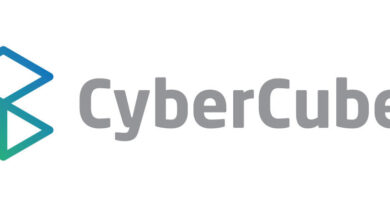The big FINTRAC mistakes brokers need to know about: Insights from an expert

As a broker, I share the frustration with many of you regarding the myriad of compliance requirements placed upon brokers, managers and real estate agents — from how to record our deals to finding out if one of my real estate agent’s clients is a cousin of someone who is a politician somewhere in the world. And this year, it will get worse.
In a recent interview with Friedrich Klaus, co-founder of Illuminai Intelligence Corporation, I gained valuable insights into the evolving world of FINTRAC (Financial Transactions and Reports Analysis Centre of Canada) compliance and the challenges faced by brokerages in Canada. Klaus shed light on the significant changes introduced in 2021, the common mistakes made by brokerages and what the future holds with compliance requirements.
The shift in FINTRAC compliance requirements
According to Klaus, the most notable change in FINTRAC compliance is the shift in responsibility from agents to managing brokers coupled with the new requirement of “ongoing monitoring”.
As of 2021, the managing broker and the business now bear the risk of substantial fines if they fail to comply with five major requirements of the updated Proceeds of Crime (Money Laundering) and Terrorist Financing Act (PCMLTFA):
- Implementing a compliance program
- Reporting transactions (filing suspicious transaction reports to FINTRAC)
- Keeping records about high-risk clients/transactions
- Knowing your client/ongoing monitoring
- Applying ministerial directives
The ongoing monitoring requirement is particularly challenging without technology, with labour-intensive and cumbersome spreadsheets the only available resource available to brokerages.
Klaus emphasized that Iluminai’s studies estimate a staggering 99.5 per cent of Canadian brokerages are almost totally non-compliant with the 2021 update to the PCMLTFA when it comes to ongoing monitoring. “There is no other way to comply, without the benefit of my platform, then (with) a spreadsheet a mile long and a mile wide, with a full-time employee doing 45 minutes to one hour of research per customer,” Klaus says.
Common mistakes made by brokerages
Klaus pointed out that many brokerages make the mistake of assuming FINTRAC’s previous “soft touch” will continue. He says, “Canada’s international reputation as a haven of weak enforcement of AML laws has forced regulatory bodies to take action. Unfortunately, a lack of financial resources available to enforcement agencies and regulators because of a decade of underfunding and broken promises by the Liberal Party of Canada means that the burden of enforcement falls upon small businesses.”
Real estate, being a prime destination for laundered funds, means brokerages must adapt or change their business models to comply with the increasingly stringent regulations that will only become more challenging in the future.
Future compliance issues and requirements
Looking ahead, Klaus predicts that the relationship between FINTRAC and the real estate sector will mirror FINTRAC’s relationship with the banks, requiring accelerated and real-time suspicious transaction reporting, and heightened transactional scrutiny by brokerages.
Improved cross-governmental information sharing and increased access to free governmental data will raise the expectations of compliance. Real estate professionals will need to actively detect fraud and adapt to the changing landscape of anti-money laundering regulations. Agents and brokerages will need to adopt new tools or be drowned in “labour cost or fines … Pick your poison,” Klaus explains.
Troublesome issues for brokerages
In a recent case, FINTRAC imposed a $132,000 penalty on Global West Realty Limited, underlining the intensified scrutiny on brokerages. The 2021 examination revealed non-compliance issues, including a lack of appointed compliance oversight, absence of written policies and neglect of ongoing compliance training.
In a recent speech at ACAMS, a global meeting for the anti-money laundering community, Sarah Paquet, CEO of FINTRAC, emphasized FINTRAC’s commitment to ensuring businesses meet obligations under the PCMLTFA. This case exemplifies a more assertive enforcement approach, using penalties to drive behavioural change.
Unclear legislation and guidance compound challenges for brokerages, notes Klaus. Some existing tools in the market, designed for agents, may lack a compliant “ongoing monitoring” solution, leaving brokerages susceptible to audits as FINTRAC assesses ongoing monitoring programs as part of their audits moving forward.
In 2022-2023, FINTRAC issued six notices of violation, totaling $1,113,569. With the real estate sector facing heightened scrutiny, brokerages must take proactive steps to navigate evolving compliance challenges and avoid substantial penalties.
Mitigating risk and starting the compliance journey
Given the significant fines, aggressive FINTRAC compliance enforcement and the political temperature to blame money laundering as a source of housing unaffordability, Klaus advises brokerages to start their compliance journey now.
What’s more, while technology is available, brokers are advised to truly understand what the technology offers and what it doesn’t. Klaus often encounters brokers who misunderstand the difference between Illuminai and what its competitors offer: “Rival platforms (to Illuminai) are akin to going to a restaurant where you receive a bill at the end, but you still have to handle the entire cooking process, serve the meal and clean up afterward.”
In contrast, Iluminai’s platform goes beyond just filling out the necessary forms — which is what Illuminai’s competitors do. Rather, Illuminai actively assists real estate brokers in achieving compliance with almost all of the ongoing review aspects of the PCMLTFA. Iluminai provides a unique and specialized service, ensuring a seamless and efficient compliance experience for the real estate industry in Canada.
Klaus emphasizes the urgency for brokerages to take proactive steps toward compliance. Whether through Iluminai’s platform or other means, adapting to the changing regulatory landscape is crucial for the real estate industry’s role in the anti-money laundering world. The time to act is now.





